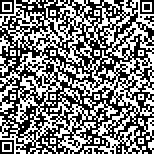| 摘要: |
| 近年来,基于人工智能的皮肤病智能诊断已经成为智慧医疗领域的热门课题。然而由于单一机构的数据有限,局部训练的神经网络难以满足医疗诊断服务的性能需求,从分散机构中收集数据的集中式学习又存在隐私泄漏的风险。基于上述挑战,本文提出一种基于联邦深度学习的皮肤病智能诊断算法。具体地,对比主流的集中式学习,为了在整合多方数据时防止隐私泄漏,本文引入了联邦学习。各客户端将本地模型发送到中心服务器进行聚合,中心服务器再将聚合得到的全局模型同步到各客户端,实现神经网络模型的训练。进一步,为了解决联邦学习中数据异构性的问题,本文在交叉熵损失的基础上增加了修正项,通过修正项限制本地模型和全局模型间的差异,增加模型对异构数据的关注度,从而减小数据异构对诊断结果的影响。实验结果表明,本文所提的皮肤病智能诊断算法与现有相关方案相比,诊断准确度提高了3%~4%,达到75.9%。 |
| 关键词: 皮肤病 智能诊断 联邦学习 隐私保护 损失函数 |
| DOI:10.12113/202210016 |
| 分类号:TP391 |
| 文献标识码:A |
| 基金项目:国家自然科学基金项目(No.61971235);江苏省“333高层次人才培养工程”资助;南京邮电大学‘1311’人才计划资助;中国博士后科学基金(No.2018M630590);江苏省博士后科研资助计划项目(No.2021K501C). |
|
| Federated deep learning-based intelligent diagnosis for skin lesion |
|
DUAN Congying, CHEN Siguang
|
|
(School of Internet of Things, Nanjing University of Posts and Telecommunications, Nanjing 210003,China)
|
| Abstract: |
| Recently,intelligent diagnosis of skin lesion based on artificial intelligence has become an attractive topic in bio-medical field. However, due to the data scarcity in single institution, locally trained neural networks are difficult to meet the performance requirement of medical services. Traditional learning paradigm, which collects data from distributed institutions to train neural models centrally, has the risk of privacy leakage. To tackle these problems, in this paper, we propose a federated deep learning-based intelligent diagnosis algorithm for skin lesion. Specifically, compared with the centralized learning, federated learning is introduced to prevent privacy leakage when integrating multi-party data. Each institution sends the local model to the central server for aggregation, and then the central server synchronizes the global model obtained. Further, a correction mechanism is proposed to modify the cross-entropy loss for solving the problem of data heterogeneous in federated learning, whereby the model attention to heterogeneous data is increased by constraining the disparity between the local model and the global model, so as to reduce the impact of data heterogeneity on the diagnostic results. Finally, the experimental results demonstrate that the accuracy of proposed algorithm is 3%-4% higher compared with existing representative works, reaching 75.9%. |
| Key words: Skin lesion Intelligent diagnosis Federated learning Privacy policy Loss function |






